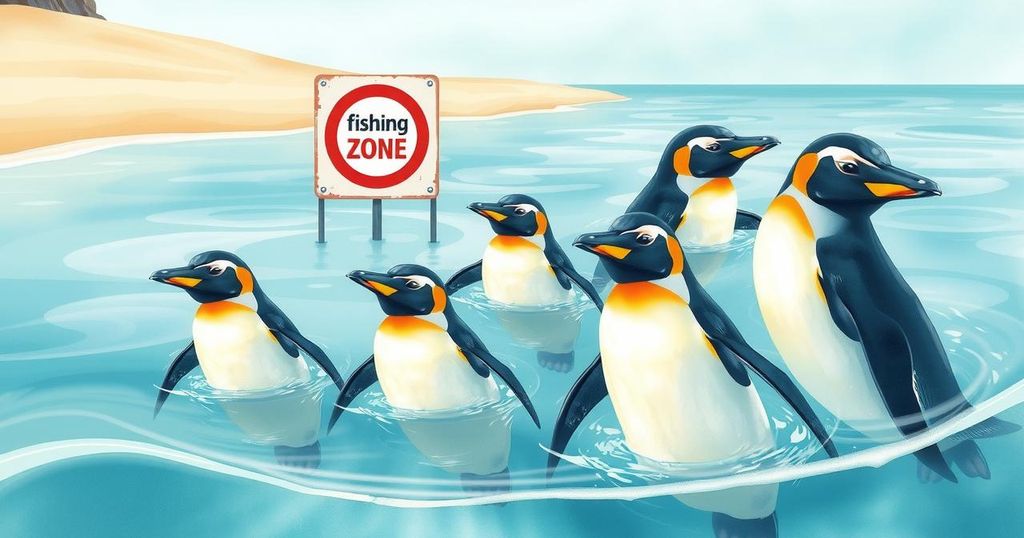No-Fishing Zones Established to Protect Endangered African Penguins

A legal settlement in South Africa has established no-fishing zones around six major breeding colonies of the critically endangered African penguin. The new regulations aim to curb the population’s decline caused by commercial fishing and other environmental factors. Conservationists and fishing groups are collaborating to address the penguins’ survival amidst the challenges posed by climate change and habitat degradation.
The recent legal settlement between South African conservationists and fishing industry representatives has established no-fishing zones around six critical breeding colonies of the endangered African penguin. This groundbreaking agreement prohibits sardine and anchovy fishing within a 20-kilometer radius of the penguin colonies located near Robben Island and Bird Island, with additional limited closures at four other sites. This aims to combat the alarming decline of the penguin population, which has decreased by 7.9% annually, leaving fewer than 10,000 breeding pairs today compared to 1 million a century prior.
Nicky Stander, head of conservation at the Southern African Foundation for the Conservation of Coastal Birds (SANCCOB), commented on the achievement, stating, “Today’s order is a significant step forward in our fight to save the African Penguin from extinction… However, while we celebrate today’s success, we remain acutely aware that our journey is far from over. The threats facing the African Penguin are complex and ongoing.”
Two fishing industry associations expressed relief at the compromise, which is set to last 10 years, pending a review after six years. They emphasized that the claim linking fishing to the decline of the penguin population is misleading, expressing hope that resources can now be allocated to better understand and address the underlying causes of the penguin’s decline. South Africa’s environment minister, Dion George, highlighted the importance of collaboration between industry and conservationists in achieving this agreement, which aligns with efforts to protect biodiversity while ensuring the fishing industry’s sustainability.
Moreover, NGOs BirdLife South Africa and SANCCOB previously took legal action for insufficient fishing restrictions on penguin colonies. George negotiated this out-of-court agreement after assuming office. Bob Furness, an emeritus professor at the University of Glasgow, echoed optimism about the island closures, but warned that these actions alone may not be enough due to multiple pressures faced by the penguins, notably the precarious state of sardine stocks. Phil Trathan, a visiting professor at Southampton University, stressed the importance of monitoring these restrictions and urged a focus on industrial fishing practices for sardine and anchovy species, as further measures may be necessary if the penguins continue to face additional threats, including climate change and habitat disruption.
The establishment of no-fishing zones around African penguin colonies marks a significant step towards averting their extinction, driven by a collaborative effort between conservationists and the fishing industry. While this agreement is promising, ongoing evaluation and a comprehensive approach to address all contributing factors are essential for the penguin population’s survival. As efforts to monitor and manage fishing practices continue, the focus must remain on ensuring the long-term health of the penguin population in the face of various environmental threats.
Original Source: www.theguardian.com






